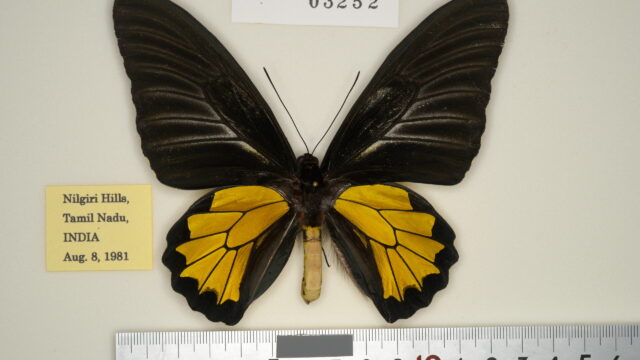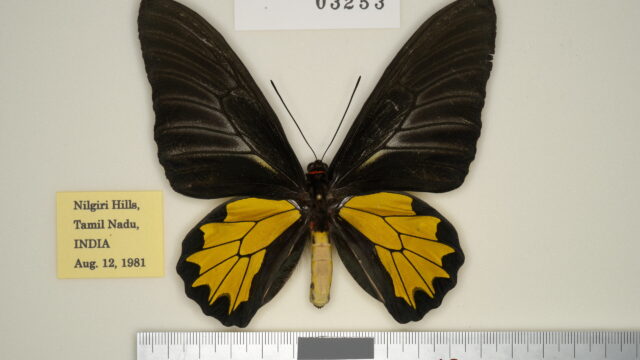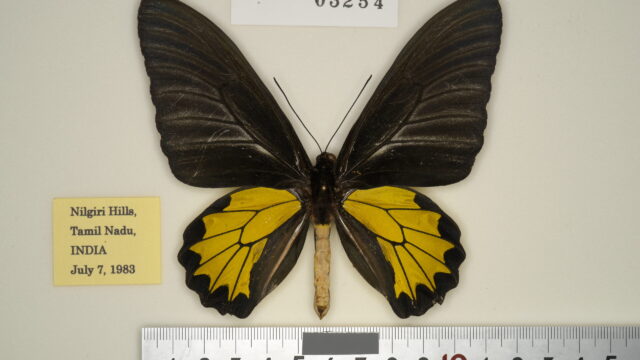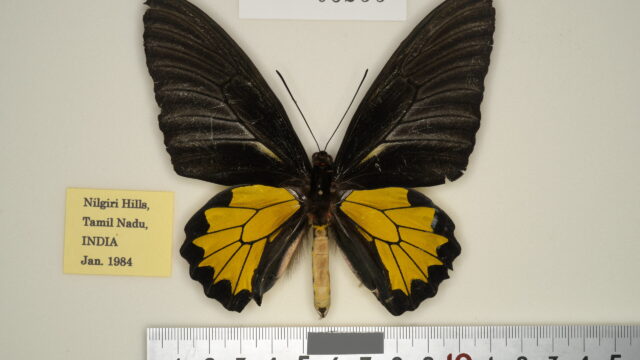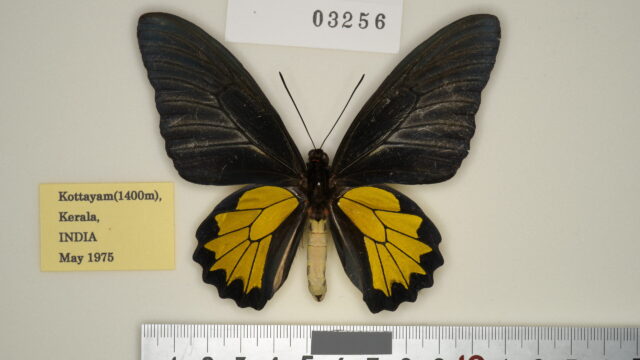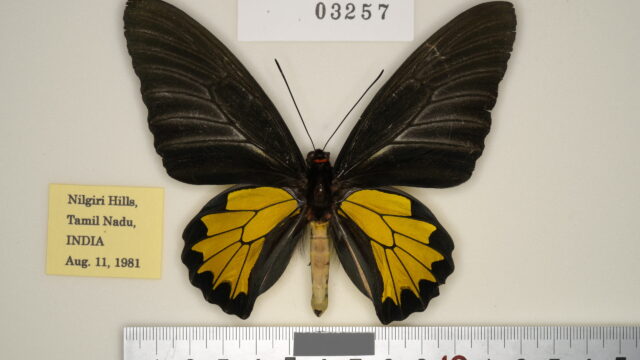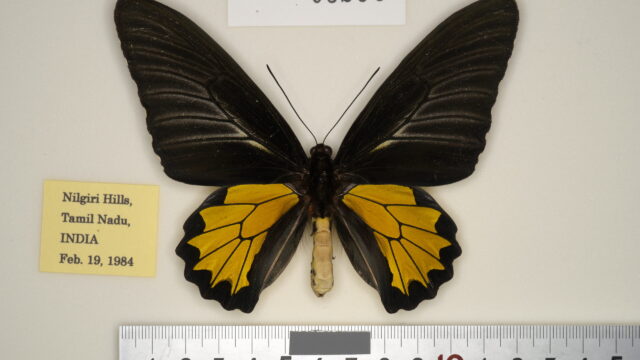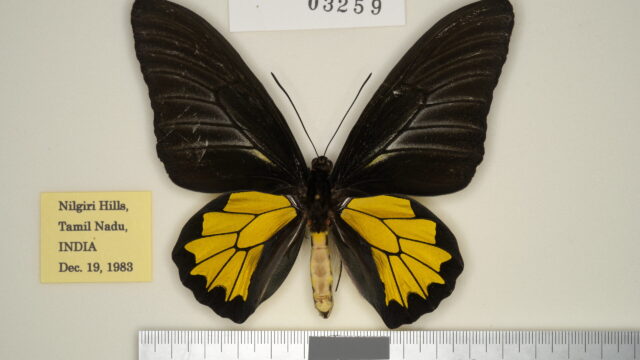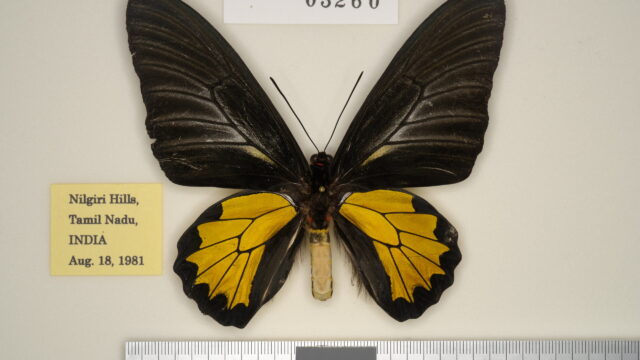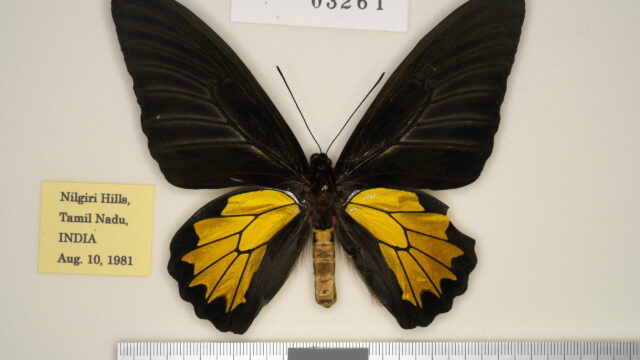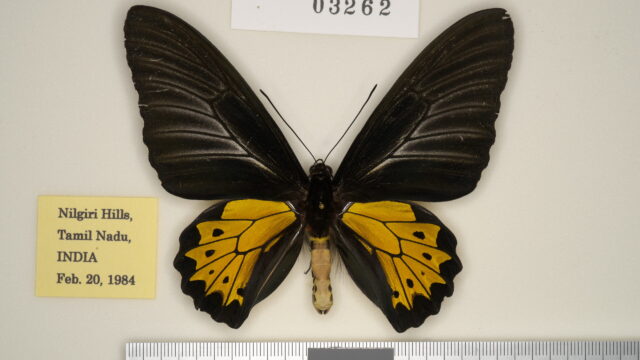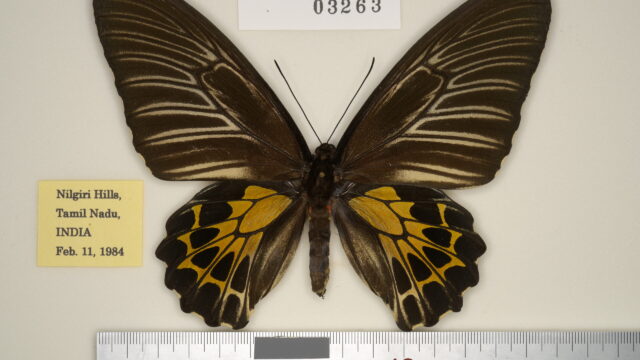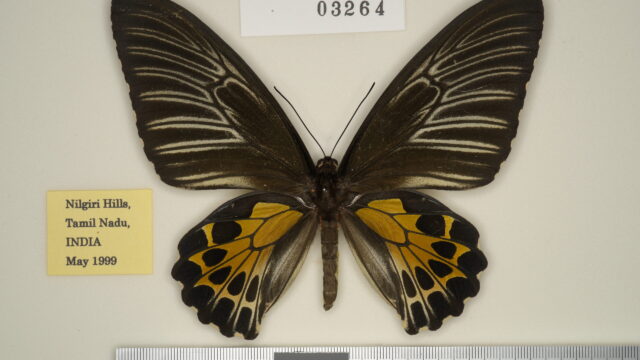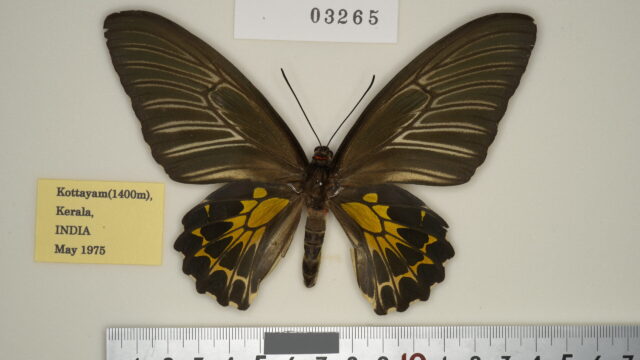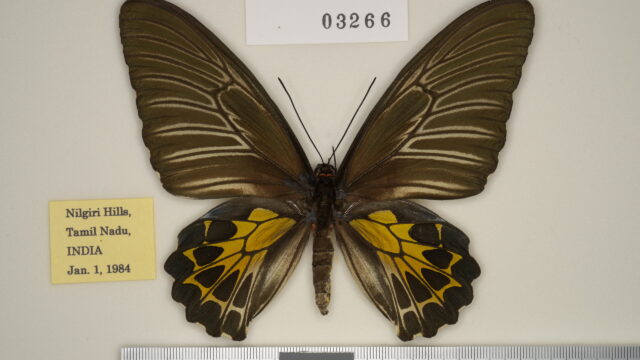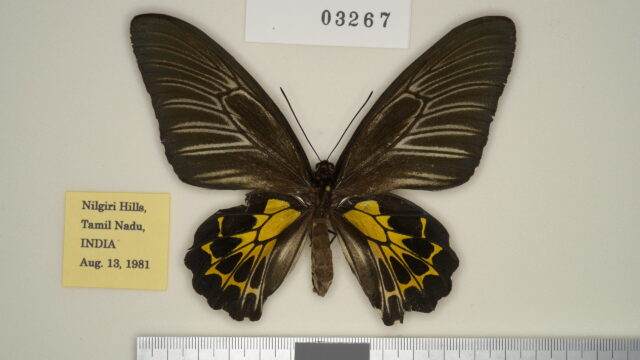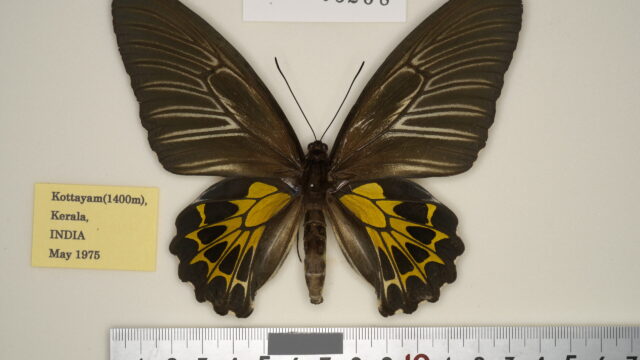19) Sp. minos (Cramer, 1779)2) [♀]) [♂: (Sealy, 1875)6)]
=heliacon, (Boisduval, 1836)1) [♀] (Java, Sumatra (sic ))
=nomis (Ehrmann, 1921)3) [♂] (S. India (Cochin (=Kochin))
(Distribution) [DCD 38], [Map 155]
INDIA [Maharashtra] Mumbai (=Bombay), Mahabaleshwar, Rajapur, Radhanagiri, [Goa], [Karnataka] Karwar, Sirsi, Jogg Falls, Shimoga, Chikmagalur, Bantwal, Virajpet (=Coorg), [Kerala] Iritti, Kozhikode (=Calicut), Malappuram, Kochi (=Cochin), Kottayam, Thekkadi, Pon Mudi, Thiruvananthapuram (=Trivandrum), [Tamil Nadu] Azhakiapandipuram, Indira Gandhi (Annamalai) Nat. Park, Palani Hills, Coimbatore, Nilgiri Hills (Nadugani, Udhagamandalam (=Ooty), Kunjapanai, Kallar), Yercaud, Chennai (=Madras), [Andhra Pradesh] Tirupati, [Orissa] Upper Parvathipuram. (Type locality: S. India)
(Vertical distribution)
0 – 2, 500 m. a. s. l.
(Episodes of discovery and original description)
This species was first described by Cramer (1779). The accompanying figure shows the wings as ♀ but the abdomen as ♂, and the collection locality as West Sumatra. However, the spots are clearly those of this species, which means that the locality is not correct. On the other hand, ♂ was described by Sealy in 1875, 96 years after the original description. The species name “minos” is derived from Minos, who was the son of the god Zeus and Europa and the king of Crete, and after his death descended to the lower world and became a judge (Greek mythology).
(Characteristics)
This species is endemic to South India, which is the western limit of the distribution of Birdwing Butterflies. A related species of Troides aeacus, especially ♀ is so similar that it is difficult to identify. It is very interesting because its distribution ranges from the lowlands to highlands of more than 2,000 m. The spotted pattern is very stable and is no local variation.
(Spotted pattern)
♂: The wings are broader than those of Troides aeacus, and the apex and tornus are rounder. FW vein-stripes are narrower but more distinct. The black marginal border on HW is broader and black marginal projections are lower. A few black shadings are present in spaces 3 and 4. Red hair tufts are present on the neck and lateral thorax. The abdomen is unique to this species, with the upper surface milky white and the undersurface bright yellowish white.
♀: This species closely resembles Troides aeacus, but can be distinguished by its narrow, whitish FW vein-stripes, its cell-spot only along the cell-veins (radius, cubitus and discocellular veins) and on HW, the absence of black shading on yellow patch between the dark discal spots and the dark marginal projections, and the presence of larger yellow spot on the subcostal space only basally, as well as the absence of yellow discal spot in space 1b. Reddish hair tufts are present on the neck and lateral thorax. The upper surface of abdomen is blackish brown and the undersurface yellow.
(Variation)
♂-f. pasifae Haugum & Low, 19824): [Aberrant HW pattern] HW with black discal spots in the subcostal space and space 2, moreover in another intermediate spaces.
(Larval foodplant)
Aristolochia tagala.5)
